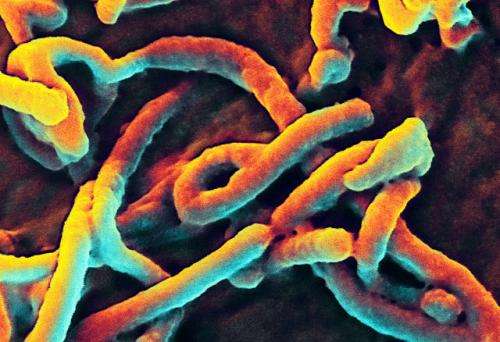Ebola vaccine approved for use by the European Commission

The European Commission has granted Marketing Authorisation to Janssen for a new Ebola vaccine, developed in partnership with the University of Oxford.
The two-dose Ebola vaccine regimen, Zabdeno (Ad26.ZEBOV) and Mvabea (MVA-BN-Filo), has been developed by the Janssen Pharmaceutical Companies of Johnson & Johnson for the prevention of Ebola Virus Disease caused by the Zaire Ebola virus species. The vaccine regimen leveraged Janssen's AdVac vaccine technology, plus Bavarian Nordic's established MVA-BN technology. It is specifically designed to induce long-term immunity against the Ebola virus in adults and children aged one year and above. As such, it can be used to support preventive vaccination in countries most at risk of outbreaks.
The University of Oxford played an important role in supporting the development of this vaccine. In response to the West Africa Ebola crisis, we collaborated in a unique, multi-partner global effort to accelerate the vaccine through multiple clinical trials across three continents.
'In 2014 the team at the Oxford Vaccine Group asked for volunteers to take part in a 'first in human' study of a new vaccine schedule against Ebola virus disease, which at that time was causing a devastating outbreak in West Africa,' says Professor Matthew Snape, the Chief Investigator on the Ebola vaccine project. 'The response from the public was overwhelming, and within a few months we knew enough about the vaccine and its safety to allow progression to studies enrolling many thousands of participants in sub-Saharan Africa.
'To see this work result in a vaccine approved for prevention of this devastating illness is wonderful, and a real vindication of what was an extraordinary effort by the study team and participants. The parallels with the current COVID-19 outbreak and vaccine studies are obvious, and both demonstrate the importance of investing in research to maintain a skilled team of research scientists, nurses and doctors able to deliver these challenging studies at great speed.'
The Ebola vaccine has already been deployed in the North Kivu region of the Democratic Republic of the Congo (DRC), following recommendation from the WHO's Strategic Advisory Group of Experts (SAGE), and in Rwanda –following conditional approval in 2019 under an 'exceptional emergency' –as part of outbreak containment efforts in the region. With the world currently focused on stopping the COVID-19 pandemic, the need for safe and effective vaccines to protect vulnerable populations from emerging infectious diseases has never been more apparent. Approval of the vaccine by the European Commission marks a significant moment in the ongoing public health effort with the aim to prevent new Ebola outbreaks before they start.
Explore further








 User Center
User Center My Training Class
My Training Class Feedback
Feedback












Comments
Something to say?
Log in or Sign up for free